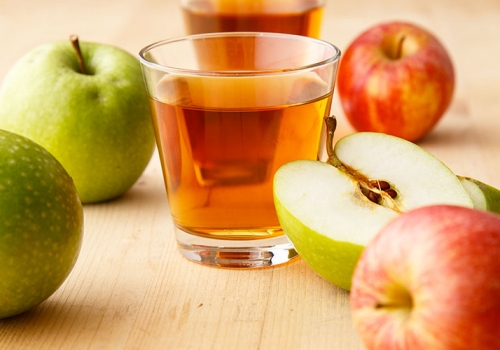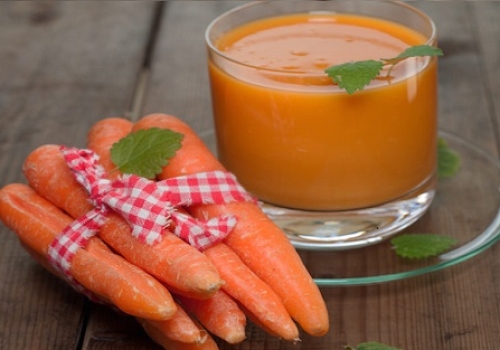MY THERAPY
HOW TO MANAGE MY THERAPY: BEFORE, DURING AND AFTER
BEFORE THERAPY – I PREPARE MYSELF IN THE BEST POSSIBILE WAY
WEIGHT LOSS
During the therapy or after surgery, you may face weight loss and caloric-protein malnutrition.
In both cases it is strongly recommended to make correct changes to your diet right away so as to prevent these side effects.
To assess whether our weight falls within an acceptable range, it is useful to calculate the body mass index (BMI = body mass in kg divided by the square of the body height in meters: for example, a person whose weight is 65 kg and who is 1.70 m tall has a BMI = 65 / (1.7 x 1.7) = 22.5). The body mass index allows us to assess whether you are underweight (BMI < 18.5), normal-weight (BMI between 18.5 and 24.9), or possibly overweight/obese (BMI > 25).
Weight loss can be due to several factors. A factor leading to weight loss may be illness, therapy, one or more changes in metabolism which can cause our body to burn more calories than we consume thus increasing the calories we need. In other cases, weight loss is due to the side effects caused by therapeutic drugs: loss of appetite, difficulty in swallowing caused by inflammation of the oral cavity, nausea, vomiting, diarrhea and malabsorption of nutrients.
It is therefore important to periodically check one’s body weight so as to maintain a proper weight.
In order to regain the lost weight or at least try to avoid caloric-protein malnutrition, it is important to consume more calories. It many cases, patients are recommended to consume more calories some of which are nutritionally unbalanced (e.g. processed sauces such as mayonnaise, hamburgers, fatty cheeses, snacks). What we aim to do is to provide advice on how to increase the calorie intake but always keeping in line with healthy eating. If you have a good appetite, increasing calories and protein will not be so difficult. You will just need to follow some simple indications:
- Don’t skip meals: have at least 5 meals a day (never skip breakfast)
- The main meals should always include a source of complex carbohydrates, fats and proteins possibly broken down in the following proportions 60%, 25-30%, and 10-15%.
- Eat nuts which are high in calories e.g. walnuts, hazelnuts, almonds, etc. Their fat content is mainly “good fat” and dehydrated fruits (dates, figs, plums, etc.) which are rich in sugars. They can be eaten as snacks or added to salads or smoothies
- Eat fatty fish e.g. salmon, mackerel, herring at least once a week
- As a dressing, use uncooked extra virgin olive oil (30-50g per day)
- Consume at least two servings of caloric fruit, e.g. avocado, banana, tangerine, grapes. Make fruit smoothies with low-fat yogurt e.g. Greek yogurt or partially skimmed milk
- Use Parmesan cheese on foods or as a snack
- Always try to include a protein source preferably of plant origin but also animal protein in the main meals: legumes, tofu, tempeh, white meats, egg whites, low-fat cheeses.
Problems can occur when we lack appetite. If that is the case, it may be useful to resort to oral nutritional supplements in liquid form or of other kinds. You can consult your doctor who will be able to advise you on the most appropriate solution for you.
Oral nutritional supplements in liquid form can be purchased at pharmacies. There are specific products for cancer patients which help to promote the maintenance of weight and muscle mass. They should be sipped slowly in order to avoid gastric and abdominal swelling.
Supplements are a good solution if the patient has specific nutritional deficiencies. Their function is to increase the caloric intake or provide the proteins and/or vitamins that the patient is not getting by means of food. Non-flavored powder nutritional supplements are available on the market, which provide calories or proteins. As they are tasteless, they can easily be added to drinks, soups, sauces and more.
The indications provided are very general. However, it is always advisable to consult a specialist who will be able to recommend a specific nutritional plan according to the needs of the patient.
DURING THERAPY – I CAN MANAGE THE SIDE EFFECTS
Some side effects may occur during therapy. Below are the most common ones. For each side effect we will provide some advice on how to best deal with them, especially regarding food and eating.
It is important to note that the following recommendations are not meant to replace the pharmacological therapies prescribed by your oncologist. They are to be considered as an integration of the medical support therapy you may have been prescribed.
NAUSEA AND VOMITING
Nausea and vomiting are the most common symptoms while undergoing chemotherapy treatments. If not properly managed, they can cause weight loss, dehydration, metabolic problems and electrolyte imbalance.
There can be three types of nausea that patients suffer with while undergoing therapy: acute nausea which arises during the first 24 hours after the therapy, delayed nausea which arises 24 hours after the administration of the therapy, and anticipatory nausea which arises before the therapy. This one is typical of those who have already undergone treatments.
To fight nausea and vomiting it may be helpful to follow some of these tips:
- Eat small and frequent meals: split meals into 5-6 snacks so that the stomach is never empty; chew food slowly. Consume food at room temperature
- It would be better if someone else prepared your meals, or, alternatively, you could prepare some meals in advance and freeze them. In this way, you just need to heat them up on the days when you do not feel well
- Nausea is often caused by smells coming from food, so avoid food with strong smell such as garlic, onions, peppers, horseradish, broccoli, savoy cabbage, etc.
- Choose salty and dry food with a high content of carbohydrates, low in fat and fiber content, and easy to digest: pasta, bread, breadsticks, crackers or puffed rice cakes.
- salted brown rice cake are handy. You can add a pinch of miso to it (fermented seasoning rich in proteins and vital enzymes, consisting of yellow soya bean, salt, rice or barley)
- Another thing that can help prevent and stop nausea is ginger. You can sip ginger herbal tea, eat candied ginger, or add some freshly chopped root or dried ginger to your food
- To avoid dehydration, drink a lot during the day and not only during meals. Liquids should be sipped. It is recommended to drink water, but also tea and herbal teas (mint tea can help ease nausea) or fruit juices.
APPLE JUICE AND AGAR-AGAR DRINK
-
- 1 cup unsweetened apple juice
- 1 teaspoon agar-agar in flakes
Add the cup of apple juice to the agar agar flakes in a saucepan and boil for a couple of minutes, until the algae is completely dissolved. Turn off the heat and let it cool down.
Drink it slightly warm just before it becomes a jelly.
If you have purchased agar -agar powder instead of flakes, add a small teaspoon to the apple juice.

CONSTIPATION
Constipation is defined as a decrease in the normal frequency of stool evacuation or difficulty in passing stool. It can be caused by chemotherapeutics, painkillers, but also as a result of poor physical activity or poor nutrition e.g. insufficient fiber and liquid intake.
If this case, we recommend that you follow these guidelines:
- Drink a lot of water preferably on an empty stomach. You can also drink tea (preferably green tea), juices (plum juice), or a drink that you can prepare with apple and agar agar (a thickening seaweed, see recipe)
- Follow a diet rich in fiber (25-35 g of fiber per day) Choose wholegrain food e.g. wholemeal sourdough bread or bread with linseeds, whole grain rice or other whole grain, fruit and vegetables (raw and cooked, with peel), legumes, dried fruits and oily seeds. All these foods, especially whole grains, must be chewed thoroughly to encourage digestion. However, it is very important to increase the fiber intake gradually to avoid the formation of swelling, cramps and intestinal gases. To combat constipation, you can also try a drink made with carrots, daikon and tamari (see recipe)
- Try to have meals and snacks every day at the same time
- Light daily physical activity is recommended e.g. taking a walk, cycling or doing yoga
With constipation, avoid eating the following foods: high-fat dairy products, low-fiber foods, white rice, bananas, cooked carrots, potatoes and chocolate.
The following are two recipes to help with constipation:
CARROTS, DAIKON AND TAMARI DRINK
-
- 1 tablespoon of grated carrot
- 1 teaspoon of tamari (fermented soya sauce)
- 1 tablespoon of grated daikon (alternatively you can use turnip)
- 1 pinch of salt
Place the grated daikon and carrot in a saucepan. Pour in two cups of water, bring to a boil and simmer for 5 minutes. Add a little salt and tamari.
You can add a pinch of grated ginger to give some taste. It is an excellent diuretic drink which can also help the intestine.

DIARRHEA
Diarrhea is the presence of two or more discharges of very soft or liquid stools per day. It is a very frequent side effect of chemotherapy during the treatment of prostate, cervix, bowel, rectum and pancreas cancers.
With diarrhea the body is unable to absorb enough nutrients and water. Unless it is treated through diet modification and drug therapy, diarrhea can lead to serious consequences e.g. stomach cramps, weakness, weight loss, dehydration, poor appetite and electrolyte alterations.
If diarrhea is present, make the following changes to the diet by following these indications:
- Drink a lot in order to replenish the lost liquids. The same indications apply in case of constipation.
- Have little snacks during the day instead of hearty meals, so that your body can digest smaller quantities of food
- Avoid eating food that is either too hot or too cold
- Limit fiber consumption (reduce fruit and vegetables and avoid whole grains and legumes)
- Eat simple boiled or steamed low-fat foods: plain, boiled rice and pasta, semolina soup, rice cream, crackers, breadsticks, white bread, white low-fat meat, low-fat fish
- Given their astringent properties, consume the following foods: bananas, peeled apples, boiled potatoes, boiled carrots, white rice and lemon.
If you have diarrhea, you should avoid: dairy products, fried, fatty and spicy foods, sweets and food with a high content of sugar, raw fruits and vegetables, legumes, all kinds of seeds, coffee and alcohol.
ORAL CAVITY INFLAMMATION
Some chemotherapeutics can cause inflammation of the mouth mucosae, with the formation of aphthae, ulcers, bacterial and fungal infections.
To resolve these inflammations your doctor will recommend some appropriate medications. However, it is important to maintain proper oral hygiene and to eat the correct food.
As for oral hygiene, use soft bristle brushes and rinse your mouth with water and baking soda. Avoid the use of alcoholic mouthwashes.
Another option is to rinse your mouth with sunflower oil on an empty stomach. Rinse out your mouth with a tablespoon of sunflower oil. The oil must be passed between one tooth and another and between the tongue and teeth. If the cleaning is performed correctly, the sunflower oil will turn whiteish. At that point you can expel the oil. If required, rinse your mouth out one last time with water. This process expels toxins, microbes and bacteria present in the oral cavity.
As regards food, here are some useful tips:
- Consume soft, very moist and low-salted food as it is easier to chew and swallow and causes less irritation. If severe mucositis arises, consume whole grains in a blended cream form
- Be careful about the temperature of food: avoid hot food as it can irritate the mouth or throat. Eat cold (room-temperature) or warm food
- Prepare peeled fruit smoothies and mix them with yogurt or vegetable milks.
- Avoid very sour, acidic or salty food and drinks because they cause irritation (citrus fruits, fruits with small seeds, pickled foods)
- Avoid spices and irritating seasonings (pepper, chili, horseradish, curry, mustard, etc.).
- Avoid dry foods e.g. crackers, chips, bread as they can scratch your mouth
- Avoid drinking alcohol
DRY MOUTH
Dryness in the mouth, also called “xerostomia”, is due to scarce saliva production. It must not be underestimated as it can lead to several problems e.g. difficulty in chewing, swallowing and taste.
To address this problem, it may be useful to follow some simple dietary tips:
- Eat mainly soft food (cereals blended into creams, yogurt, ice cream, vegetables and fruit smoothies) and fresh fruits in small chunks especially those rich in water e.g. watermelon, grapes, oranges
- Drink a lot throughout the day taking small sips. This is to keep your mouth moist. It is recommended to drink mainly water, but you can also drink fruit juices with no added sugars
- Chew sugar-free gums or citrus candies to stimulate salivation
- Avoid eating dry foods such as bread, crackers, breadsticks, etc. salty foods, spicy foods, raw and sweet vegetables.
AFTER THERAPY – I MAINTAIN A PROPER LIFESTYLE
When cancer medical care is over, it is essential to maintain a proper lifestyle.
By “correct lifestyle” we mean following a healthy diet and staying physically active. In the “10 golden rules” a concept is underlined, namely that following the rules for prevention is important both for healthy people and for people who have already dealt with the disease. In fact, a healthy lifestyle reduces both the risk of cancer and that of possible recurrences.
Following a proper diet is the first step to start on a new path in the best possible way. Choosing the right food will allow your body to regain the lost strength, help you during the healing process and make you feel better. This will result in a better quality of life and in an increased longevity.
To be able to follow the recommendations and a correct diet one should pay special attention to the choice of food and to how it is prepared. The ideal thing would be to start from buying the raw materials and cook the meal yourself in order to control the quality and quantity of nutrients you eat.
For example, we can limit the amount of saturated-trans fatty acids, those in margarines and in foods fried in hydrogenated oils and sugars we eat. On the other hand, we can increase fiber intake, plant-origin proteins, minerals and vitamins.
It is not always possible to prepare freshly cooked food on a daily basis so an alternative would be to freeze the prepared dishes so they can be eaten when you require it. If you do not like cooking, you will have to rely on pre-packaged foods. In this case, it is really important to pay close attention to their composition so reading the nutritional label is important.
Please remember that each patient has his/her own personal history and life experience. The recommendations generally apply to everyone, but the individual can be helped by both his/her own doctor and nutritionist. They will build a path “tailored” according to your needs.



